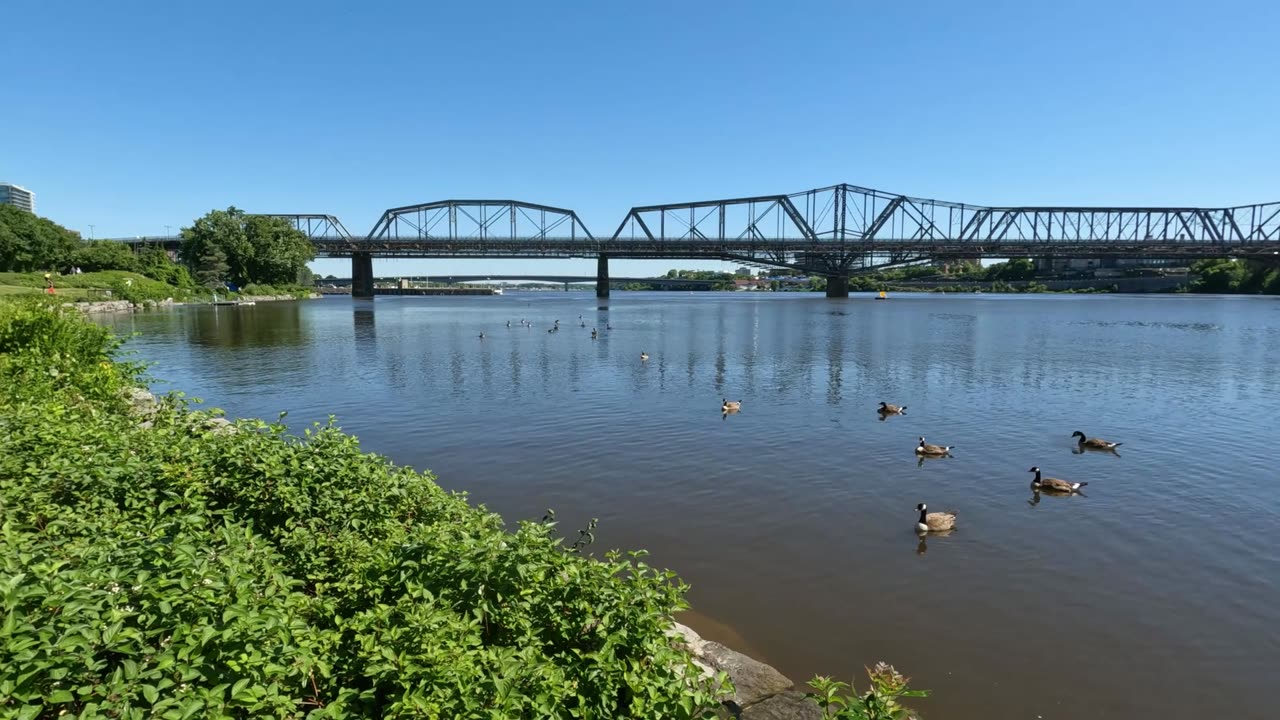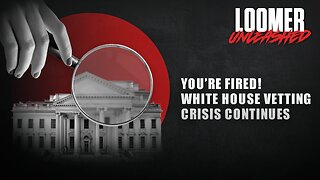Premium Only Content

🍁 #Happy Canada Day Eh! Monday July 1st 2024 🍁
🍁 Healthy4Life - Canada 157 Years Young
🍁Canada Day, formerly known as Dominion Day, is the national day of Canada. A federal statutory holiday, it celebrates the anniversary of Canadian Confederation which occurred on July 1, 1867, with the passing of the British North America Act, 1867, when the three separate colonies of the United Canadas, Nova Scotia, and New Brunswick were united into a single dominion within the British Empire called Canada.
Canada is a country in North America. Its ten provinces and three territories extend from the Atlantic Ocean to the Pacific Ocean and northward into the Arctic Ocean, making it the world's second-largest country by total area, with the world's longest coastline. Its border with the United States is the world's longest international land border. The country is characterized by a wide range of both meteorologic and geological regions. It is a sparsely inhabited country of 40 million people, the vast majority residing south of the 55th parallel in urban areas. Canada's capital is Ottawa and its three largest metropolitan areas are Toronto, Montreal, and Vancouver.
Indigenous peoples have continuously inhabited what is now Canada for thousands of years. Beginning in the 16th century, British and French expeditions explored and later settled along the Atlantic coast. As a consequence of various armed conflicts, France ceded nearly all of its colonies in North America in 1763. In 1867, with the union of three British North American colonies through Confederation, Canada was formed as a federal dominion of four provinces. This began an accretion of provinces and territories and a process of increasing autonomy from the United Kingdom, highlighted by the Statute of Westminster, 1931, and culminating in the Canada Act 1982, which severed the vestiges of legal dependence on the Parliament of the United Kingdom.
🍁🍁Canada is a parliamentary democracy and a constitutional monarchy in the Westminster tradition. The country's head of government is the prime minister, who holds office by virtue of their ability to command the confidence of the elected House of Commons and is "called upon" by the governor general, representing the monarch of Canada, the ceremonial head of state. The country is a Commonwealth realm and is officially bilingual (English and French) in the federal jurisdiction. It is very highly ranked in international measurements of government transparency, quality of life, economic competitiveness, innovation, education and gender equality. It is one of the world's most ethnically diverse and multicultural nations, the product of large-scale immigration. Canada's long and complex relationship with the United States has had a significant impact on its history, economy, and culture.
A developed country, Canada has a high nominal per capita income globally and its advanced economy ranks among the largest in the world, relying chiefly upon its abundant natural resources and well-developed international trade networks. Recognized as a middle power, Canada's strong support for multilateralism and internationalism has been closely related to its foreign relations policies of peacekeeping and aid for developing countries. 🍁🍁Canada is part of multiple international organizations and forums.
Etymology
Main article: Name of Canada
While a variety of theories have been postulated for the etymological origins of Canada, the name is now accepted as coming from the St. Lawrence Iroquoian word kanata, meaning "village" or "settlement".[8] In 1535, Indigenous inhabitants of the present-day Quebec City region used the word to direct French explorer Jacques Cartier to the village of Stadacona.[9] Cartier later used the word 🍁🍁Canada to refer not only to that particular village but to the entire area subject to Donnacona (the chief at Stadacona);[9] by 1545, European books and maps had begun referring to this small region along the Saint Lawrence River as Canada.[9]
From the 16th to the early 18th century, "Canada" referred to the part of New France that lay along the Saint Lawrence River.[10] In 1791, the area became two British colonies called Upper 🍁🍁Canada and Lower Canada. These two colonies were collectively named the Canadas until their union as the British Province of Canada in 1841.[11]
Upon Confederation in 1867, Canada was adopted as the legal name for the new country at the London Conference and the word dominion was conferred as the country's title.[12] By the 1950s, the term Dominion of Canada was no longer used by the United Kingdom, which considered Canada a "realm of the Commonwealth".[13]
The Canada Act 1982, which brought the Constitution of Canada fully under Canadian control, referred only to Canada. Later that year, the name of the national holiday was changed from Dominion Day to Canada Day.[14]
Proud Canadian 36🍁🍁
Have a Safe & Healthy Day My Friends🍁🍁
🍁🍁🍁🍁
-
 LIVE
LIVE
Lofi Girl
2 years agoSynthwave Radio 🌌 - beats to chill/game to
215 watching -
 22:39
22:39
BlabberingCollector
8 hours agoThe Alphabet Mafia Is Mad At JK Rowling AGAIN
16K3 -
 5:30:52
5:30:52
SpartakusLIVE
9 hours agoDuos w/ @GloryJean || #1 Masculine Muscle MASS sears YOUR retinas with MIND BENDING content
223K3 -
 3:05:49
3:05:49
TimcastIRL
9 hours agoNew DOCS PROVE Obama Hillary CONSPIRACY To SABOTAGE Trump Admin | Timcast IRL
225K118 -
 2:29:36
2:29:36
Laura Loomer
9 hours agoEP136: YOU'RE FIRED! White House Vetting Crisis Continues
63K39 -
 8:07
8:07
MattMorseTV
9 hours ago $6.71 earnedTrump just LOWERED PRICES by 75 PERCENT.
38.2K39 -
 11:27:53
11:27:53
Misfit Electronic Gaming
12 hours ago $4.99 earned"LIVE" "Blind Descent' +"Dollhouse of Dead" Playtest 10 Followers till we hit 1000! We CAN do this!
42K -
 21:53
21:53
Glenn Greenwald
11 hours agoMichael Tracey on the Street: What Do People Think of the Epstein Case?
129K59 -
 2:26:28
2:26:28
megimu32
8 hours agoOTS: Board Games Gone Wild! The Loud, Weird & Chaotic Games That Raised Us
38.9K9 -
 4:25:16
4:25:16
DamnDanieI
8 hours agoKill First, Loot Later – OTG Live
56.4K1